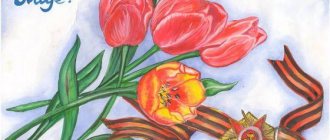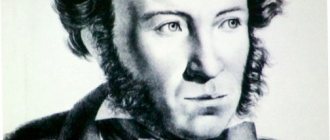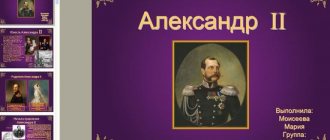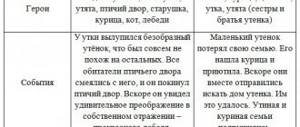Option #1
Awarded
Vasilyeva Ekaterina,
student of the Municipal educational institution “Secondary school No. 5 in Astrakhan”
(head: V. M. Fedotova)
for a high artistic level and performing skills at the city competition of readers and literary and musical compositions “The whole world is a theater.”
Chairman of the Committee
in education and science
F. D. Melnikov
Astrakhan
October, 2020
Musical options
Several times a year, various music competitions are held in educational institutions, where children show their ability to sing, play instruments, and some - to compose simple but cool songs. And, of course, we need to think about what nominations will be presented for awards. First of all, there are quite serious options:
- Academic vocals.
- Ethnic (folk) vocals.
- Instrumental creativity.
- The best drummer.
- Balalaika master.
- Domra virtuoso.
Other names are possible, depending on what kind of musical instrument is being studied in a particular children's group.
In addition, inscriptions on diplomas and honorary certificates can be creative, funny, creative. For example: “For soulful performance”, “The most unusual number”, “The saddest song”, “Best duet”, “For diligence”, “Best stage costume”.
Presenting awards and souvenirs will be an excellent decoration for any children's party; in addition, some ideas can be used for a corporate party among adults. The most important thing is to approach the process of coming up with a name creatively, and not be afraid to deviate from generally accepted standards that cause nothing but boredom. And, of course, prepare all the samples and forms on time so that you don’t have to rush to look for them before the holiday.
Option #3
Department of Education and Youth Policy of the Administration of the Krasnobakovsky Municipal District of the Nizhny Novgorod Region
rewards
Ushakova Anton,
student 9 "A" class MBOU "Krasnobakovskaya secondary school No. 2"
for 1st place
in the category “Poetry in Artistic Reading”, VIII municipal recitation competition “Poet of the Country of Childhood”, dedicated to the work of the children's poet K. I. Chukovsky.
Head of the Department of Internal Affairs and MP
Krasnobakovsky MR
L. B. Ignasheva
2020
Regulations on the reading competition
State Autonomous Professional Educational Institution of the Novosibirsk Region
"Novosibirsk College of Auto Service and Road Facilities"
| Considered at the meeting PCC Protocol No.__ from "__"___________ 2020 _________I.K. Gudzhedzhiani | I APPROVED Acting Deputy director for research and development ____S.V. Krasheninnikov "___"___________2018 |
POSITION
about the reading competition “We talk about war in poetry”
Organizer: teacher Vekshina G.V.
2018
REGULATIONS for the reading competition “We talk about war in poetry”
1. General Provisions:
1.1 The reading competition “We talk about war in poetry” (hereinafter referred to as the Competition) is held on World Poetry Day.
1.2 These Regulations regulate the goals, objectives, conditions and procedure for conducting the Competition.
2. Objectives of the Competition:
—to introduce teenagers and young people to the cultural and historical heritage, to instill a sense of pride and love for their people, their country, and its defenders;
- develop and improve the art of artistic expression.
3. Objectives of the Competition:
— instilling in adolescents citizenship and patriotism, respect for immortal military feats;
— expansion and deepening of knowledge on the biography and work of Russian poets;
—propaganda of poetic artistic expression;
- identification and encouragement of young talents and talents in artistic reading;
— training in expressive reading and acting.
4. Participants of the competition:
4.1 Participants in the Competition can be first and second year college students.
5. Conditions of the competition:
5.1 Participants are invited to expressively read poems and excerpts from poetic works devoted to the theme of war.
5.2 Participants are given the right to independently choose a work to perform at the competition.
5.3 The performance must be presented in one piece.
5.4 The reader’s speaking time is up to 5 minutes.
5.5 Each participant performs individually; collective reading of poems is not provided.
5.6 The volume of the work cannot be less than 12 lines.
6.Procedure for the competition:
6.1 The competition will be held on March 30, 2020 at 13.30 hours at the address: st. Vatutina, 61a, office No. 46.
6.2 The order of performances of the competition participants is determined by drawing lots.
7. Criteria for evaluating participants’ performances:
— Indication of the author and title of the poem — 5 points;
- knowledge of the text by heart. Reading accuracy - 5 points;
— compliance of the submitted work with the theme of the competition — 5 points;
— compliance of the performance with the given time frame of the competition - 5 points;
— expressiveness and clarity of speech — 5 points;
— emotionality and artistry - 5 points;
— appearance - 5 points.
The maximum possible number of points awarded by one jury member is 35 points.
8.1 The jury consists of teachers of the educational institution.
8.2 The jury determines the winners of the competition.
9. System for evaluating the performances of competition participants:
9.1. The evaluation of the participants' performance is carried out by filling out a special form by all jury members and giving marks on a 5-point scale for each of the established criteria. The final score is determined by summing the points assigned to the participant by all members of the jury.
10. Awards:
10.1 The winners will be awarded diplomas.
10.2 The jury has the right to award one place to several participants, but not all places.
11. Applications for participation:
11.1 Applications for participation in the competition are accepted in the prescribed form (Appendix) by e-mail
Competition coordinator:
Application
APPLICATION
to participate in the reading competition “We talk about war in poetry”
Last name, first name, patronymic of the competition participant ____________________________
__________________________________________________________________
Age, group_______________________________________________
Title of the work used ________________________________
__________________________________________________________________
Author of the work _______________________________________________
Head of the competition participant (full name, position) ___________________________________________________________________
Contact number ________________________________________________
Recommendations for design
- After the header (the top of the sheet), the main text is laid out in the center of the page.
- After the main text, the position of the authorized person is indicated on the left.
- Opposite the position, on the right edge, indicate the initial letters of the name and surname of the (fully) authorized person.
- If there are several authorized persons (people), positions and surnames are listed one under the other (see as in samples No. 7, No. 8, No. 9).
- Between the position and surname, the personal signature of the authorized person and the round seal of the organization are placed.
- If there are several authorized persons (people), the number of personal signatures must be equal to the number of surnames of authorized persons, and the seal of the organization (institution) remains one (on the sheet).
- The last entry on the page will be the name of the locality and the date. It is allowed to shorten the date, leaving only the month and year, or only the year (award).
- If the name of the locality has already been mentioned somewhere in the text, it is permissible not to repeat this information at the end of the page. See how in samples No. 3, No. 10.
- The number and series of the order (if any) are indicated after the main text on the left edge or in the center of the page.
- Individual words in the text may be highlighted in capital letters (usually the word “awarded” is highlighted in this way) or in bold font (the name and surname of the recipient are highlighted in this way).
- You may find another collection of literacy texts useful if you did not find a suitable text on this page.
Literary competitions
Various competitions related to literary activities are popular in kindergartens and primary schools. This could be a classic recitation competition, in which the child is asked to learn and recite a poem. Moreover, the text can be on a specific topic (for example, dedicated to mother or New Year) or the child gets the opportunity to recite his favorite poem.
Options for nomination names for a reading competition in kindergarten (primary school):
- The best reader (the prize is awarded to the child who recites the poem in the best way).
- To the author (a reward is expected for the child who read his own poems).
- The most emotional reading.
- For efforts (a reward will await the little one who has learned the longest piece).
- For cheerfulness (to the one who reads a cheerful, positive poem).
- Creative approach (for that child who not only recites the text, but, for example, chooses an unusual costume, takes on some kind of image).
- The best pair work (awarding occurs if the children have memorized a long poem and read it in turns or in roles).
It is important that each participant in the competition receives their own certificate, otherwise the child will feel humiliated. But we should not forget that the reward must be deserved, you cannot unfairly encourage someone, this will negatively affect the character of the child, who will not understand that efforts should be made to receive the prize.
In the Central Regional Library named after. E.A.Isaeva held a regional reading competition “War.Victory.Memory”, dedicated to the 74th anniversary of the Great Victory
In the central regional library named after. E.A. Isaeva held a regional reading competition “War. Victory. Memory”. He once again showed us how talented our children are. More than 50 readers aged from 7 to 25 years competed in the ability to read poems expressively, emotionally and artistically. The competition was held in three age categories. The contestants were evaluated by a competent jury, which included: Yuri Pavlovich Vylegzhanin - editor of the literary almanac "Bityug", Yuri Ivanovich Kopysov - poet, member of the literary and poetry club of the Central Regional Library "Pegasus", Irina Aleksandrovna Trufanova - teacher, member of the literary and poetry club " Pegasus", Soldatov Alexander Ivanovich - fabulist, member of the literary and poetry club "Pegasus", Chernov Sergey Valentinovich - prose writer, member of the poetry club "Podkova", Okorokova Maria Evgenievna - member of the literary and poetry club "Pegasus". This year the jury had the difficult task of choosing the best from a large number of talented and strong readers. The competitors and their directors took the selection of works very seriously. When evaluating the jury, they took into account the expressiveness of reading, performing skills, stage culture and a creative approach to reading the work. Reading poetry is a rather interesting activity for all people, because they discover a world for themselves - so big and colorful.
Throughout the competition, poems by famous authors were heard - E. Asadov, Yu. Drunina, M. Jalil, O. Bergolz, L. Tassi, K. Simonov, A. Tvardovsky, T. Chernovskaya, V. Tushnova, B. Okudzhava. Children of the 21st century read touchingly, selflessly, or rather, more accurately, lived what their peers and those older during the Great Patriotic War of 1941-1945 had to experience over four long years. All the horrors of war every day, every second . But war is hundreds of times more terrible if you see it through children's eyes. And no amount of time can heal the wounds of war, especially children’s wounds. Where do these little hearts come from so much understanding of the tragedy of those military events?! Several children read Laura Tassi’s poem “Children of War,” but each time it sounded different. One of the youngest participants in the competition, Elizaveta Tishchenko, from Bobrov Secondary School No. 1, captivated everyone present. Dressed in a simple dress and bast shoes, she recited a poem by E. Asadov. The soulful performance of A. Tvardovsky’s poem “The Soldier’s Shoemaker” by Maxim Popov - Mechetsky rural settlement will remain in the memory of listeners for a long time. Yulia Korsakova performed M. Jalil’s poem “Barbarism” very touchingly; those present could hardly hold back their tears.
The winners were:
I age category\7-11 years\
Tishchenko Elizaveta - 1st place \ Bobrov secondary school No. 1. Ryabovol Nadezhda Vasilievna\
Elina Alina - 2nd place \Nikolskoe s\p hands. Zherdeva Elena Alekseevna\
Akindinov Yuri - III place \ Khrenovskoye village secondary school No. 2. Stefan Tatyana Petrovna\
II age category \12-15 years\
Korsakova - 1st place , Khrenovskoe village Secondary School No. 2. Stefan Tatyana Petrovna\
Popov Maxim - 2nd place \ Mechetsky s\p hands. Solomatina Elena Nikolaevna\
Samorokovskaya Olga - III place \ Khrenovskoe village secondary school No. 21 bunch. Stefan Tatyana Petrovna\
III age category \16-25 years\
Gavrilova - 1st place \Khrenovskoye village, head Nadezhda Mikhailovna Degtyareva\
Togushova Tatyana – 2nd place \ Bobrov secondary school No. 1, director Borovkova Irina Evgenievna \
Nasonova Anna – III place \ Khrenovsky Forestry College hands. Duplishcheva Tatyana Vladimirovna/
We hope that the poems about the war performed by the participants in the regional competition left bright and joyful feelings in every soul. The main thing is that the war remains in poems, drawings, paintings and never, never repeats itself in reality. All the children who participated in the competition received diplomas and invaluable experience of performing in front of their peers and the jury. The employees of the central regional library express their deep gratitude to all the leaders who prepared the children for the competition, all the participants and their parents for their participation and support!




